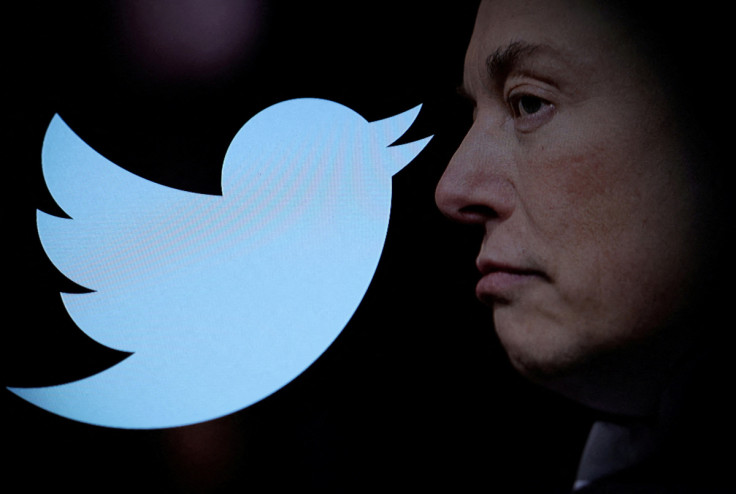Twitter introduces monetisation for content creators, how much does it pay?
Former Twitter CEO Jack Dorsey isn't pleased with Elon Musk's handling of the microblogging platform.

Twitter has introduced an all-new monetisation feature, giving its users an unmissable opportunity to earn money from their content. The feature is called Subscriptions Creators and it allows users to charge subscribers for access to their content. The Creator Subscriptions feature is currently available in 115 countries including the United Kingdom. The company is still mum on its plan to bring the feature to other countries.
Content creators can now enable subscriptions to their text, pics & video worldwide on this platform! https://t.co/XzrFMLPytB
— Elon Musk (@elonmusk) April 28, 2023
Notably, the cost of the subscription is set by the user. A major portion of the subscription fee will be transferred to the user's account when someone subscribes to their page. Key details about the Subscription Creators feature have been shared in a detailed breakdown on the Twitter Help Center website.
Twitter monetisation feature: How does it work
The user will get 97 per cent of the subscription amount if the transfers total up to $50,000 (about £39,700). So in this case, the social media platform will be taking a 3 per cent commission. However, Twitter will take a 20 per cent commission when the total amount of transfers is over $50,000 (about £39,700).
However, Apple takes a whopping 30 per cent commission for in-app purchases. So, if someone purchases the subscription via an Apple device, the commission will be 33 and 50 per cent, respectively.
Creators can now sign up and earn a living directly on Twitter in the EU, UK, and EEA.
— Twitter (@Twitter) April 21, 2023
Tap on “Monetization” in settings to apply today.
For a full list of available countries see our Help Center: https://t.co/YbBw0EVKqJ
This monetization does not apply to South Africa 😭 pic.twitter.com/MiVJFZRd6P
— Maki Marish (@MakiMarish) April 28, 2023
Notably, the minimum payout amount is $50 (about £39). If a Twitter user fails to meet this threshold, the unpaid amount will be forwarded to the next month until the user meets or exceeds the threshold. Twitter CEO Elon Musk and other high-profile Twitter users are sparing no effort to promote the Subscriptions Creators feature.
To recap, Musk recently acknowledged that "many mistakes" were made after he bought Twitter for $44 billion. So, the 51-year-old business magnate is probably trying to make amends by encouraging content creators to activate subscriptions for their videos, photos, and even texts worldwide on Twitter. Folks at GizChina believe this new feature can revolutionise how content creators earn money from their content.
You can’t apply for monetization unless you are subscribed to Twitter blue or verified organizations pic.twitter.com/Zp4xufcFUs
— Jonah Manzano (@jonah_manzano) April 27, 2023
However, it is still unclear whether the feature will garner popularity among content creators in the countries where it is available. It will also be interesting to see whether Musk will expand the feature to other countries in the coming days. Meanwhile, the top executive is being criticised by former Twitter CEO Jack Dorsey,
Jack Dorsey on Elon Musk's Twitter takeover
Jack Dorsey claimed Elon Musk is the "singular solution" he trusts when it comes to running Twitter not long ago. However, the American Internet entrepreneur now seems to have a different opinion about how Musk is handling the microblogging website. Earlier this week, a Bluesky user asked Dorsey whether he still thinks Musk was the ideal owner for Twitter. To those unaware, Bluesky Social is a potential Twitter rival that Dorsey reportedly helped to start.
Former-Twitter CEO, Jack Dorsey has launched alternative app, Bluesky on Android pic.twitter.com/efydXXIcGh
— Naija (@Naija_PR) April 22, 2023
According to a Business Insider report, Dorsey said Musk should have never bought Twitter. "No. Nor do I think he acted right after realizing his timing was bad," he wrote. Moreover, Dorsey claims the Twitter board's decision to force Musk to buy the platform was also a "bad idea."
NEWS: Jack Dorsey on Elon Musks Twitter Takeover. pic.twitter.com/ZISDinUwBD
— T(w)itter Daily News (@TitterDaily) April 29, 2023
During an interview with BBC earlier this month, Musk said he would sell Twitter if he finds the right buyer for the platform. Dorsey believes Musk should have "walked away and paid the $1b" break-up fee under his original agreement to purchase Twitter. To make things worse, the popular investor has been catching flak for introducing new Twitter policies lately.
For instance, Musk was criticised for making Twitter users pay for the blue verification check marks, which used to be a means to verify the authenticity of high profile accounts. Aside from this, staffers filed a lawsuit against the controversial tycoon after he began mass layoffs at Twitter back in November 2022. As if that weren't enough, Musk drew heavy criticism for labeling some media outlets as "government-funded" in April.
© Copyright IBTimes 2025. All rights reserved.






















